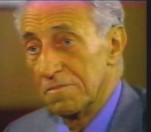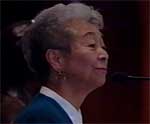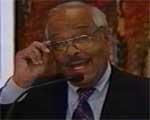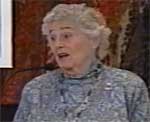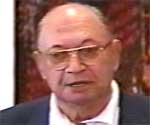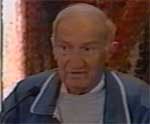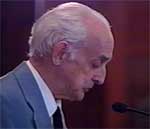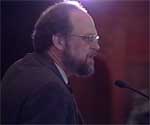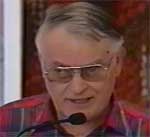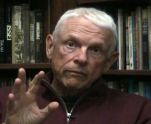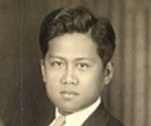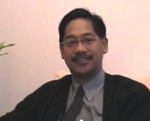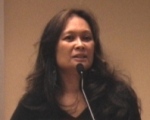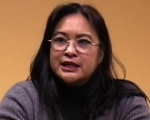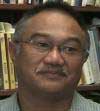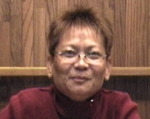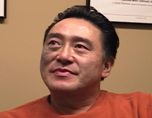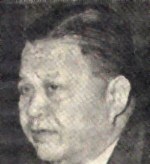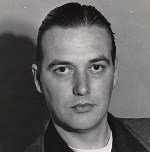Sections: Harry Bridges| Longshore Oral Histories| Cannery Oral Histories|Jerry Tyler
Harry BridgesFounder and ILWU president Harry Bridges was one of the outstanding labor leaders of the 20th Century. Here are two Bridges videos:, a 1950 newsreel press conference and his 1986 Local 23 speech commemorating the 100th anniversary of longshore unionism in Tacoma.
|
Remembering Harry Bridges
Noriko BridgesWriter, activist, wife of Harry Bridges, Noriko Sawada Bridges (Nikki)grew up in California, spent three years in a concentration camp during World War II, and was active in labor and civil rights before meeting Bridges in 1958. For the next thirty years, both Nikki and Harry committed themselves to the labor movement, civil rights, and economic justice. |
|
Jack TannerJudge, Civil rights attorney, ILWU member, Jack Tanner was the first African-American in the Pacific Northwest to serve on the federal bench. Tanner was born in Tacoma in 1919. His father was a longshoreman and Tanner began his working life on the docks. In this talk Tanner discusses Harry Bridges and the ILWU’s tradition of interracial unionism. |
|
Jean GundlachFor thirty years Jean Gundlach served as the administrative assistant of the ILWU Coast Committee. In practical terms this meant that she worked day-in and day-out with Harry Bridges. In the 1990s Gundlach was instrumental in forcing then-UW president William Gerdberding to issue a formal apology to the victims of the Canwell Committee trials. In 1992 she was a central in the creation of the Harry Bridges Chair in Labor Studies . |
|
Martin JugumMartin Jugum may have only referred to himself as a “working stiff,” but for over fifty years he was a key figure in the ILWU and central to the creation of the Harry Bridges Chair in Labor Studies at the University of Washington. Jugum held many elected positions in the ILWU, including business agent of Local 19. |
|
Pete GrassiPete Grassi was the secretary-treasurer of the ILWU’s Southern California Pensioner’s Club. Grassi was born in 1910 in Chicago and moved to California in 1919. He started working on the waterfront in 1928 and was active in the ILA’s efforts to win coast-wide union recognition in the 1930s and the coast-wide longshoremen’s strike in 1934. |
|
Jeff StranahanSecretary-treasurer of the ILWU’s Columbia River District Pensioner’s Association. He was a steadfast member of the ILWU for over 48 years and dedicated to the principles of organized labor. Here, Stranahan talks about Harry Bridges’ relationship with rank-and-file ILWU members and the trust he put in them. |
|
Fred HaleyChampion of both civil rights and academic freedom in the Pacific Northwest. As president of the Tacoma School Board in the 1960s he advocated for the hiring of African American teachers in the Tacoma public school district and he served on the Washington State Committee for Academic Freedom. |
|
Bruce NelsonLabor historian, professor of history at Dartmouth University, Bruce Nelson is author of Workers on the Waterfront and Divided We Stand. In his talk, Nelson discusses Harry Bridges, the ILWU, and race relations during the civil rights era. |
|
Robert ChernyLabor historian, professor of history at San Francisco State University, Robert Cherny is writing a biography of Harry Bridges. He is author of American Labor and the Cold War and A Righteous Cause, a biography of William Jennings Bryan. His talk here discusses Harry Bridges and labor radicalism on the Pacific Coast. |
Longshore Oral Histories
Ron MagdenRon Magden’s passion for teaching and writing about Pacific Coast longshoremen has spanned many decades. He is author of many books, including The Working Waterfront, and A History of Seattle’s Waterfront Workers. Magden has been crucial to the development of this on-line history project. |
|
Eugene VranaRetired ILWU Labor archivist and longshoreman Eugene Vrana grew up in the Red Scare, the son of Communist Party leaders Eugene and Peggy Dennis. His oral history covers his youth, his career as a longshoreman and archivist for the ILWU. Injured on the job, he retrained as a librarian and turned the ILWU collection into one of the premier union archives anywhere. |
Cannery Oral Histories
Antonio Rodrigo, Bruno Tapang, Carlos Malla, Gerald Laigo, Joefa Barazona, and other union foundersTranscripts of interviews with activists who built the union in the 1930s and 1940s, including Antonio Rodrigo, Bruno Tapang, Carlos Malla, Gerald Laigo, Josefa Barrazona, Paul Tabayoyan, Perry Woodall, Roman and Hazel Simbe, Sinsorso and Fell Ordona, Santiago (Jim) Beltran. And also Filipino community builders Rufina Clemente Jenkins, Francesca Robinson, and Fred Cordova. FANHS Collection. |
|
David DellaDavid Della grew up in Seattle. He became active in the Alaska Cannery Workers Association in the 1970s and was elected into the ILWU Local 37 lesdership in the 1980s. A former director of the State Commission on Asian and Pacific American Affairs, he was elected to the Seattle City Council in 2003. |
|
Cindy DomingoSister of assassinated union leader Silme Domingo, Cindy Domingo was active in the Union of Democratic Filipinos (KDP) in the 1970s and in the 1980s headed the Committee for Justice for Domingo and Viernes that waged a successful 9 year long campaign to prove that Marcos regime was complicit in the murders. |
|
Lynn DomingoThe youngest of the Domingo siblings, Lynn joined the KDP while in high school in the 1970s, organized Asian American students at UW, joined ILWU local 37 and organized Alaska cannery workers. She remains an active member of LELO. |
|
Richard GurtizaBorn in Wapato, Washington in the 1950s, like many Filipino Americans, Rich Gurtiza went to work in the Alaska canneries. In the 1970s and 1980s he was active in the Alaska Cannery Workers Association and the campaign to reform Local 37, the union of cannery workers. Today he is President of Region 37, Inlandboatman’s Union/ILWU, |
|
Velma VeloriaThe first Filipina American elected to a State Legislature in the continental U.S., Velma Veloria came to Seattle in the 1980s to organize cannery workers under the auspices of the Union of Democratic Filipinos (KDP). After a decade of labor activism, she turned to electoral politics and served in the legislature for 13 years. |
|
Michael WooBorn in Seattle, Michael Woo attended UW in the 1960s. Beginning in 1970 he was an organizer for the United Construction Workers Association, fighting to integrate the construction trades. In 1973 he co-founded the Alaska Cannery Workers Association. . |
|
Ernesto MangaoangWe have a remarkable audio record from the 1950 Alaska cannery workers strike. O, Local 7 business agent Ernesto Magaoang was interviewed on Reports from Labor, a biweekly labor radio show that aired in the Seattle area. Host Jerry Tyler told listeners about the lockout and strike and Mangaoang filled in the details. The 10 minute interview can be heard in the mp3 player or read the transcript.. |
Jerry Tyler and Labor Radio
Jerry Tyler and Labor RadioMaritime worker, labor activist, and radio personality, Jerry Tyler was a Seattle labor celebrity from the 1940s until his death in 2009. The radio voice of organized labor in Seattle and the Pacific Northwest, he is most remembered as the host of Reports from Labor, a popular radio show in the Seattle area which ran from 1948 to 1950. Here is a detailed biography of Tyler and an examination of his radio program. Listen to selected 10 minute boradcasts from 1948-1951.
|
